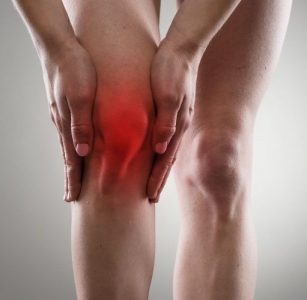 Individuals with knee arthritis are always looking for ways to take pressure off their aching knees, so if they see footwear with claims that they “are designed to relieve pressure on the knee joint,” odds are they’ll be willing to give them a try. Unfortunately, new research out of Australia suggests that they may not be as effective as they claim.
Individuals with knee arthritis are always looking for ways to take pressure off their aching knees, so if they see footwear with claims that they “are designed to relieve pressure on the knee joint,” odds are they’ll be willing to give them a try. Unfortunately, new research out of Australia suggests that they may not be as effective as they claim.
According to researchers, shoes with modified midsoles designed to relieve pressure on the knee did not improve pain scores or functional mobility in individuals with knee arthritis any more than a new pair of normal walking shoes.
“It is somewhat surprising that we did not observe greater pain relief with the Gel Melbourne OA shoes compared to conventional shoes, given that our biomechanical research previously showed that the shoes can significantly reduce loads across the inner knee compartment,” said lead author Rana S. Hinman of the University of Melbourne. “It may be that footwear needs to be used in combination with other treatment strategies, such as strengthening exercise, weight loss, pain coping skills training and/or analgesics.”
Knee Arthritis Study
In an effort to better understand load bearing on knees in different shoes, researchers examined 164 individuals aged 50 years and older who stated that they deal with knee pain almost every day. One group was given standard walking shoes to wear while the other group received special “unloading” walking shoes with “triple-density, variable-stiffness midsoles and mild lateral-wedge insoles.”
Study participants were told to wear the shoes for at least four hours per day for six months and to avoid changing shoes. Reported pain levels and physical function was assessed at the outset and after six months of wear. At the conclusion of the study, roughly half of the participants reported that they had lower levels of pain and displayed an increase in overall function, but they were split almost evenly between the group that received the special pair of shoes and the group that received normal walking shoes.
“Our trial shows the unloading shoes conferred no additional benefit compared to the conventional comparator shoes – however both types of shoes resulted in significant pain relief and improvement in physical function compared to baseline levels recorded by participants at the start of the trial,” Hinman said. “So both types of shoes were beneficial to the patients in our trial – and thus either type of shoe could be considered beneficial.”
So when it comes down to it, you may not need to shell out extra cash for a pair of “load dispersing” shoes. As long as you’re buying a good, supportive and durable shoe, you can help prevent the worsening of knee arthritis and in some cases improve your pain levels and knee function. Other tips for controlling symptoms associated with knee arthritis include:
- Strength and aerobic exercise
- Weight loss
- Activity pacing
- Heat or ice
- Activity modification
- Analgesics
- Anti-inflammatory medications